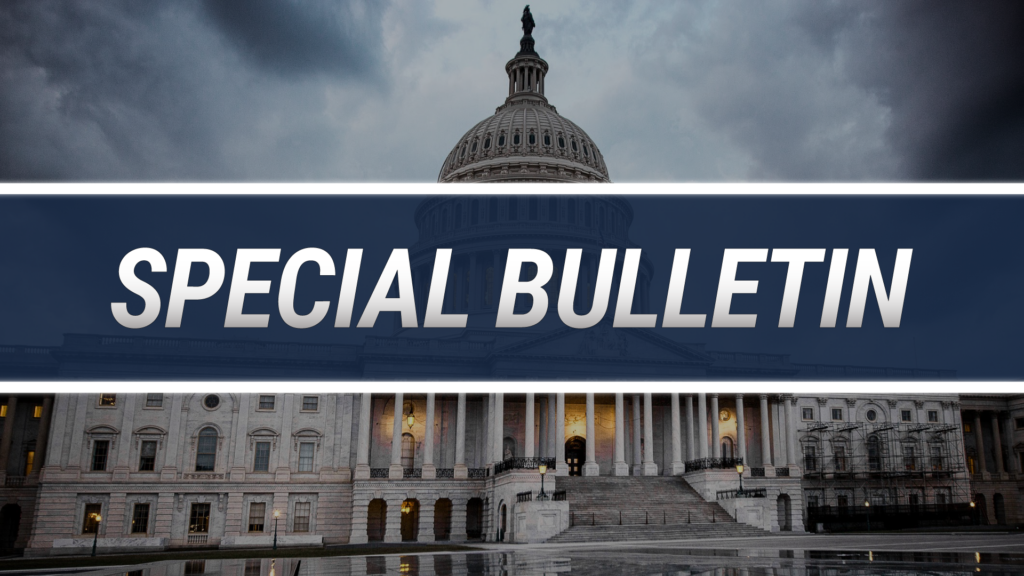
CRUSH and the New Era of Real-Time Program Integrity Oversight
EDITOR’S NOTE: The author of this article used AI-assisted tools in its composition, but all content, analysis, and conclusions were based on the author’s professional

Let me start this article by asking for your help. Flash back to 2013. The Centers for Medicare & Medicaid Services (CMS) at that time proposed to take total knee arthroplasty off the Inpatient-Only List. They felt that it could safely be performed as an outpatient procedure. But the reality was that at that time, very few orthopedic surgeons were performing joint replacements and sending patients home the next day, much less the same day. And so, many people involved in case management and utilization review sent in comments telling CMS what a bad idea it was, and CMS read ended up leaving it on the List – and didn’t finally remove it for another four years.
Now, as I have discussed previously, for 2026, CMS is proposing to eliminate the Inpatient-Only List altogether over the next three years. Now, I think this is a done deal, so we must just accept it and adapt, but what I need all of you to do is to submit comments to CMS asking them to please address at least two things. The first would be to describe how to get Part A skilled nursing facility (SNF) access for post-surgical patients who require such care, but cannot qualify if their surgery is performed as outpatient. CMS did tell us when they removed total knee arthroplasty from the List that we could consider the need for post-hospital SNF care as a factor in selecting the site of service, but it would be so helpful to have it in writing that such a provision applies to any surgery.
And second is to help us understand the applicability of the case-by-case exception for surgeries when the expected length of stay is one midnight, but the patient is determined to be at higher risk. In requesting this clarification, we’d also stress that we need such guidance, since the case-by-case exception applies not only to traditional Medicare, but also to Medicare Advantage (MA) patients, as some MA plans continue to deny admissions that meet the Two-Midnight Rule. All of us have seen how even a year and a half after the applicability of the Two-Midnight Rule to MA plans, they continue to rely on commercial criteria, deny the medical necessity of a second midnight of care, and of course, deny inpatient payment on an inpatient-only surgery without a stay of two midnights.
Now, I know I am asking a lot, so I prepared a page with the link to submit comments, and even prototype comments that you can use as a guide (or even just copying and pasting them). CMS does allow anonymous comments, if you are concerned about having your name posted. Just go to www.ronaldhirsch.com and you will see a link labeled “Comment on Inpatient Only List.” Just click that. And please add your own comments. Feel free to comment on anything else in the proposed rule as well, such as the proposal to allow any surgery at ambulatory surgery centers (ASCs), the effect of their site-neutral payment proposals, and the proposal to stop collecting data on the social determinants of health (SDoH) that affect our patients. Support them or disagree with them; CMS does read every comment.
One last note. Last week President Trump signed an executive order to allow homeless individuals who have substance abuse or mental health issues to be involuntarily “institutionalized.” There is still no guidance on how this will be operationalized. But as we all know, there is already a huge shortage of providers and facilities for persons with mental health or substance abuse disorders, either in the hospital setting or community-based setting, and I am concerned that this will lead to such patients simply being brought to the hospital and left there for hospital staff to figure out a discharge plan. And that, of course, would only serve to exacerbate the already critical ED boarding problem that exists in many hospitals.
We can only hope that this order is carried out with thoughtfulness and adequate funding for community resources. But as a reminder, the government does not pay for services that are the obligation of another entity, per 42 CFR 411.7(a), which states that “payment may not be made for services that any provider or supplier is obligated to furnish at public expense, in accordance with a law of, or a contract with, the United States.” So billing the entity that is responsible for providing that community-based housing and care should be considered.
EDITOR’S NOTE:
The opinions expressed in this article are solely those of the author and do not necessarily represent the views or opinions of MedLearn Media. We provide a platform for diverse perspectives, but the content and opinions expressed herein are the author’s own. MedLearn Media does not endorse or guarantee the accuracy of the information presented. Readers are encouraged to critically evaluate the content and conduct their own research. Any actions taken based on this article are at the reader’s own discretion.


EDITOR’S NOTE: The author of this article used AI-assisted tools in its composition, but all content, analysis, and conclusions were based on the author’s professional

While the coverage of telehealth is definitely a good thing, it has caused needless confusion. I would like to address a little of that today.
Please log in to your account to comment on this article.

Sepsis sequencing continues to challenge even experienced coding and CDI professionals, with evolving guidelines, documentation gaps, and payer scrutiny driving denials and data inconsistencies. In this webcast, Payal Sinha, MBA, RHIA, CCDS, CDIP, CCS, CCS-P, CCDS-O, CRC, CRCR, provides clear guideline-based strategies to accurately code sepsis, severe sepsis, and septic shock, assign POA indicators, clarify the relationship between infection and organ dysfunction, and align documentation across teams. Attendees will gain practical tools to strengthen audit defensibility, improve first-pass accuracy, support appeal success, reduce denials, and ensure accurate quality reporting, empowering organizations to achieve consistent, compliant sepsis coding outcomes.

Expert presenters Kathy Pride, RHIT, CPC, CCS-P, CPMA, and Brandi Russell, RHIA, CCS, COC, CPMA, break down complex fracture care coding rules, walk through correct modifier application (-25, -57, 54, 55), and clarify sequencing for initial and subsequent encounters. Attendees will gain the practical knowledge needed to submit clean claims, ensure compliance, and stay one step ahead of payer audits in 2026.

Accurately determining the principal diagnosis is critical for compliant billing, appropriate reimbursement, and valid quality reporting — yet it remains one of the most subjective and error-prone areas in inpatient coding. In this expert-led session, Cheryl Ericson, RN, MS, CCDS, CDIP, demystifies the complexities of principal diagnosis assignment, bridging the gap between coding rules and clinical reality. Learn how to strengthen your organization’s coding accuracy, reduce denials, and ensure your documentation supports true medical necessity.

Denials continue to delay reimbursement, increase administrative burden, and threaten financial stability across healthcare organizations. This essential webcast tackles the root causes—rising payer scrutiny, fragmented workflows, inconsistent documentation, and underused analytics—and offers proven, data-driven strategies to prevent and overturn denials. Attendees will gain practical tools to strengthen documentation and coding accuracy, engage clinicians effectively, and leverage predictive analytics and AI to identify risks before they impact revenue. Through real-world case examples and actionable guidance, this session empowers coding, CDI, and revenue cycle professionals to shift from reactive appeals to proactive denial prevention and revenue protection.

In this timely session, Stacey Shillito, CDIP, CPMA, CCS, CCS-P, CPEDC, COPC, breaks down the complexities of Medical Decision Making (MDM) documentation so providers can confidently capture the true complexity of their care. Attendees will learn practical, efficient strategies to ensure documentation aligns with current E/M guidelines, supports accurate coding, and reduces audit risk, all without adding to charting time.

Join Ronald Hirsch, MD, FACP, CHCQM for The PEPPER Returns – Risk and Opportunity at Your Fingertips, a practical webcast that demystifies the PEPPER and shows you how to turn complex claims data into actionable insights. Dr. Hirsch will explain how to interpret key measures, identify compliance risks, uncover missed revenue opportunities, and understand new updates in the PEPPER, all to help your organization stay ahead of audits and use this powerful data proactively.

Stay ahead of the 2026-2027 audit surge with “Top 10 Audit Targets for 2026-2027 for Hospitals & Physicians: Protect Your Revenue,” a high-impact webcast led by Michael Calahan, PA, MBA. This concise session gives hospitals and physicians clear insight into the most likely federal audit targets, such as E/M services, split/shared and critical care, observation and admissions, device credits, and Two-Midnight Rule changes, and shows how to tighten documentation, coding, and internal processes to reduce denials, recoupments, and penalties. Attendees walk away with practical best practices to protect revenue, strengthen compliance, and better prepare their teams for inevitable audits.

As AI reshapes healthcare compliance, the risk of biased outputs and opaque decision-making grows. This webcast, led by Frank Cohen, delivers a practical Four-Pillar Governance Framework—Transparency, Accountability, Fairness, and Explainability—to help you govern AI-driven claim auditing with confidence. Learn how to identify and mitigate bias, implement robust human oversight, and document defensible AI review processes that regulators and auditors will accept. Discover concrete remedies, from rotation protocols to uncertainty scoring, and actionable steps to evaluate vendors before contracts are signed. In a regulatory landscape that moves faster than ever, gain the tools to stay compliant, defend your processes, and reduce liability while maintaining operational effectiveness.
Happy National Doctor’s Day! Learn how to get a complimentary webcast on ‘Decoding Social Admissions’ as a token of our heartfelt appreciation! Click here to learn more →
CYBER WEEK IS HERE! Don’t miss your chance to get 20% off now until Dec. 1 with code CYBER25
CYBER WEEK IS HERE! Don’t miss your chance to get 20% off now until Dec. 2 with code CYBER24